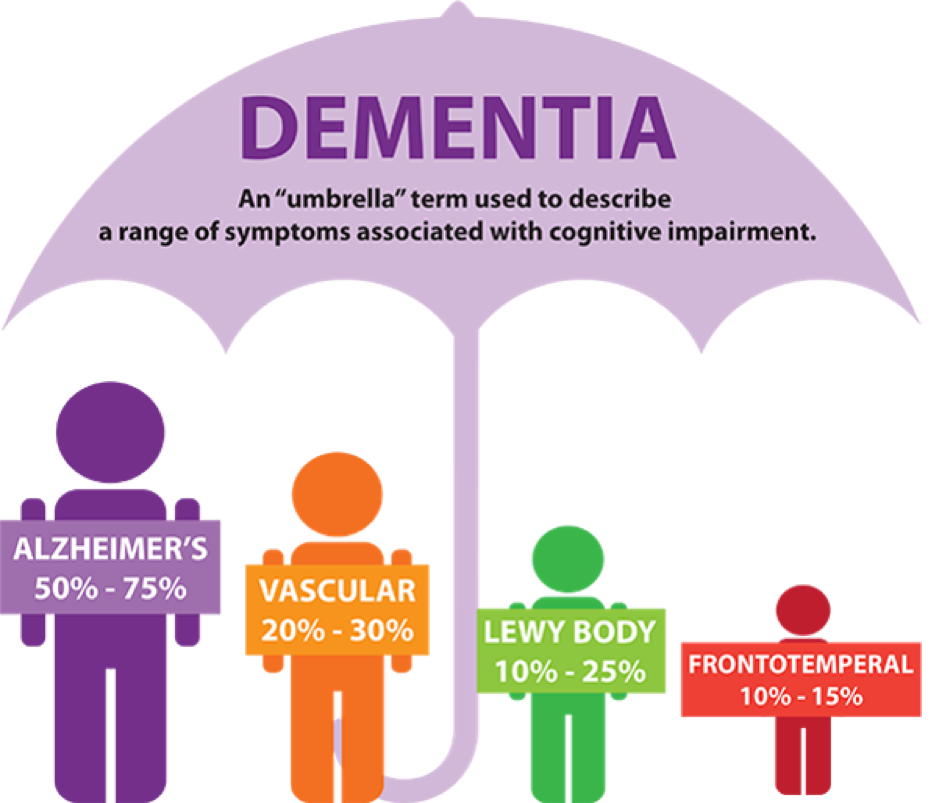Types of Dementia

What Is Alzheimer's Disease
Alzheimer’s disease is the most common and well-known cause of dementia. It is thought to cause over half of all cases of dementia.
What is Vascular dementia
Vascular dementia is the second most common type of dementia and it occurs when the blood supply to the brain is damaged.
Dementia with Lewy Bodies
Dementia with Lewy bodies is a type of dementia that shares characteristics with both Alzheimer’s disease and Parkinson’s disease.
Frontotemporal dementia
Frontotemporal dementia, including Picks Disease is a rare type of dementia which is caused by damage to different areas of the frontal and temporal lobes of the brain.
Intellectual Disability and Dementia
People with an intellectual disability, particularly people with Down syndrome, are at increased risk of developing dementia as they age.
